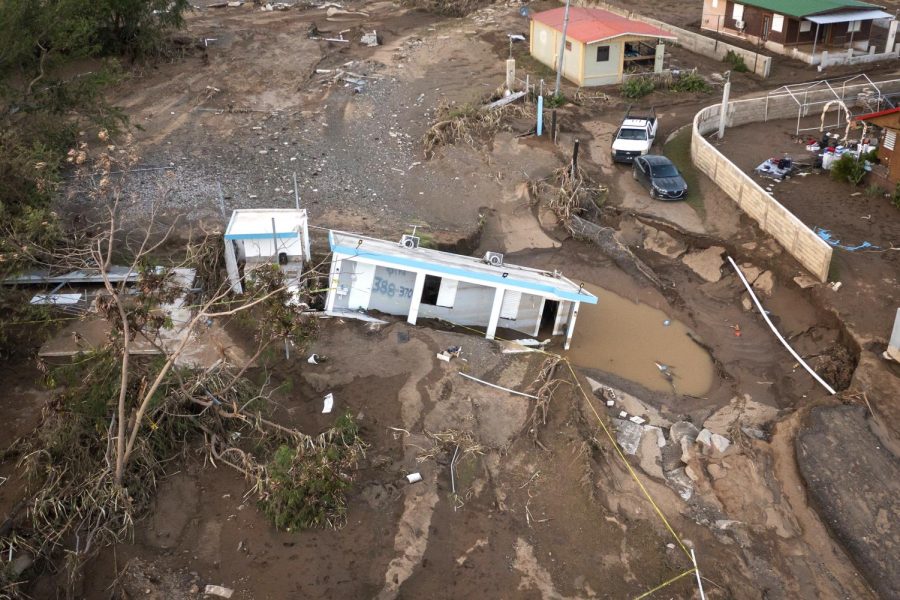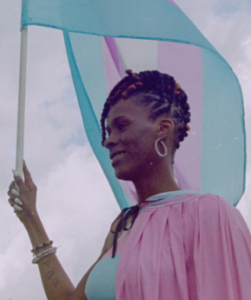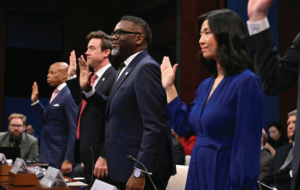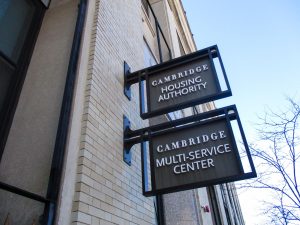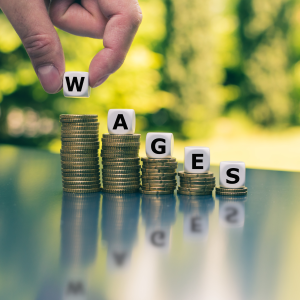Hurricane Fiona Demands Action from the U.S.
November 12, 2022
Hurricane Fiona, a devastating Category Four hurricane that lasted from September 13th to 24th, left Puerto Rico desperately trying to rebuild. During the eleven-day period, she swept from Latin America, including the Dominican Republic and Bermuda, all the way up to Atlantic Canada. Among those affected is the U.S. territory Puerto Rico. Despite the storm having officially “ended,” the effects are far from such.
This, unfortunately, isn’t the first time a hurricane has hit Puerto Rico. 2017’s Hurricane Maria was a Category Five (the highest and deadliest category possible for a hurricane) that caused over 3,000 deaths and the longest power outage in U.S. history, affecting 100% of the territory’s population. This led to what Puerto Ricans described as “an entire collapse” of the island, from its healthcare system to its infrastructure to its political scheme. Maria hit the island at full force, and it barely got back up on its feet only to have another hurricane strike.
With Hurricane Fiona, Puerto Ricans are beginning to feel mirrored effects. Weeks after the hurricane hit, more than 100,000 people are still completely without electricity, a drop from the initial 1.5 million users left powerless a week later. Considering the power outage had been pinpointed as what tipped the collapse back in 2017, this blackout does not bode well for Puerto Rico. Furthermore, morale on the island has been on a quick decline. The University of Illinois found that more than 49% of Puerto Rican workers met the criteria for a post-traumatic stress disorder diagnosis a year after Maria. Hurricane Fiona has been causing similar mental health declines. Puerto Rico’s Mental Health and Anti-Addiction Services Administration received double the amount of calls it typically gets in a week within five days of the hurricane, showing a similar trend toward poorer mental health. 1,900 of these 3,000 calls were directly related to Hurricane Fiona. These crises, in addition to the multiple fatalities, leave much damage control to be done.
Christopher Montero, a history teacher at CRLS, took time out of his classes to educate students about the history and role of Puerto Rico in the United States. Montero told the Register Forum, “The only hope we have of flipping the script and doing right by [the people of Puerto Rico] is if we talk about it and educate ourselves about what our own fellow Americans are going through.” Aurora Hill ’25, one of Montero’s students, states that “Mr. Montero’s decision to spend class time working on this project was incredibly necessary.”
The problem is that Puerto Rico remains a U.S. territory, which doesn’t give it the same benefits should it be granted statehood. Though bills to do so have been entered into the House, as of now, Puerto Ricans are not able to reap the same benefits as mainland Americans, such as being able to vote or having voting members in Congress. This inequality is what certain Puerto Ricans determine to be the reason for the dire economic situation. This neglect is simply an aftereffect of the U.S.’ colonial mindset. Hill continues that, “[T]he repercussions and impacts of these incidents were due to systems of oppression and inequality. This is not just a current event or issue as it has affected many people previously and will continue to for generations.” Those in a position to are encouraged to donate and spread the word, to let an American issue be felt and cared for by America. When our fellow people are in trouble, the U.S. is called to protect all those who make up the nation, not simply those within arm’s length.

